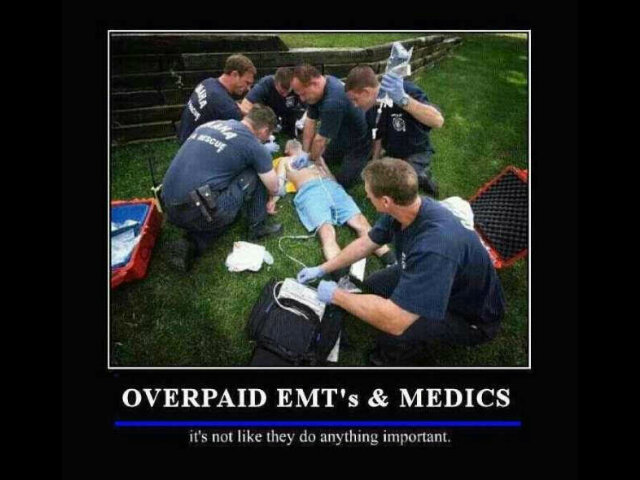ExpatMedic0
MS, NRP
- 2,237
- 269
- 83
for Paramedic currently it should be at least on par with police and fire. Once education standards go up in the U.S. I think it should pay as much or more than an RT or RN. I believe it already does in most the common wealth countries from what I have seen....
The current wage is pitiful, especially in Oregon where we implemented the mandatory degree over 10 years ago and we are still starting Paramedics at 40k a year like most of the U.S. where only vocational certificates are required.
I believe a lot of this may have to do with the way the U.S. EMS reimbursement system is setup. However, its obvious... whatever the problem may be.... The U.S. is behind compared to every other modern western country in the world. Something needs to be done to increase both education and pay, for us and the patients.
The current wage is pitiful, especially in Oregon where we implemented the mandatory degree over 10 years ago and we are still starting Paramedics at 40k a year like most of the U.S. where only vocational certificates are required.
I believe a lot of this may have to do with the way the U.S. EMS reimbursement system is setup. However, its obvious... whatever the problem may be.... The U.S. is behind compared to every other modern western country in the world. Something needs to be done to increase both education and pay, for us and the patients.

